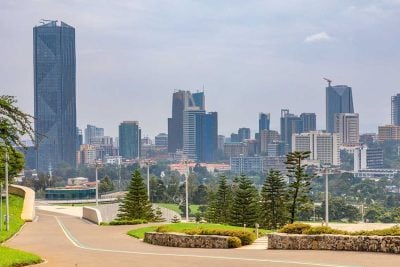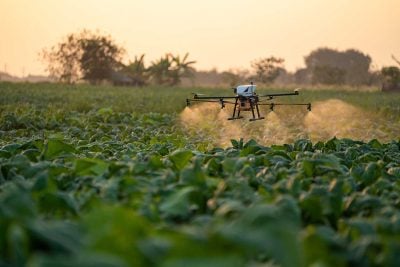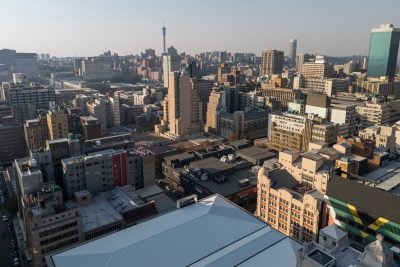Under its Vision 2035 strategy, the government of Djibouti is seeking to use its excellent transport links to build a fast-growing African economic and trade hub. By taking advantage of the African Continental Free Trade Agreement (AfCFTA), it can strengthen economic ties with other African economies, while acting as a conduit for trade with the rest of the world.
Djibouti’s strategy has certainly paid dividends to date. Growth averaged more than 6% between 2013 and 2019, understandably weakened during the Covid-19 pandemic and immediate post-Covid years, but reached 7% in 2023.
The African Development Bank (AfDB) forecasts growth of 6.5% this year but the government hopes to lift the annual growth trajectory to 10% a year in the longer term. At the same time, pandemic-inspired inflation, which reached 11% in July 2022, fell to a more manageable 4.2% in January 2024.
Nevertheless, the government is continuing to respond to tightening global financial conditions, fallout from the Russian invasion of Ukraine and climate change, with three main policies: strengthening governance, improved revenue collection and making sure its expenditure has as much impact as possible. As a result, the government is moving all revenue administration on to digital platforms.
In the longer term, Vision 2035 aims to promote economic diversification into new sectors, including financial services, digital technology and tourism.
The number of licensed banks has increased from just two to 13 over the past few years but the government is keen to attract more employment in the sector. Djibouti is already connected to ten subsea telecoms cables but the telecoms sector is to be deregulated to attract more competition and thereby drive down prices.
Revenue from the US, Chinese, French, Japanese, Saudi Arabian and Italian military bases that Djibouti hosts could also be lifted. The military base leases are currently being reviewed to ensure that they are set at a fair rate and to institute a rate increase indexation mechanism.
According to Mohamed Siad Doualeh, Djibouti’s ambassador to the US, the government is also seeking to boost economic ties with the countries operating military bases in the country in order to secure investment in other sectors.
About $2.3bn in foreign direct investment (FDI) was attracted over the two decades up to 2021 but this figure looks set to be greatly surpassed over the next 20 years. Foreign investors can benefit from the fact that the Djibouti franc has been pegged to the US dollar since 1949, the lack of restrictions on foreign exchange and profit repatriation, and the absence of specific limits on foreign land ownership.
The IMF is particularly keen to see more employment created in the next stage of the country’s economic development. To this end, the government is seeking to improve its human resources through a greater emphasis on education and training. The literacy rate in 2020 stood at 59% for adults aged under 49 but steadily increasing that figure will open up a wider range of employment opportunities for the population.
Port advantages for manufacturing
A great deal of effort has been put into improving Djibouti’s infrastructure to support inward investment. Most analysis of Djibouti’s economic strategy rightly focuses on the central role played by its port facilities. Along with Mombasa, Djibouti is one of the two most important container ports in eastern Africa between Egypt in the north and South Africa in the south.
Its location on the Bab el-Mandeb strait also means that it lies on the main shipping routes between Asia and Europe, with almost a third of the world’s seaborne trade passing by Djibouti’s shores.
Port cargo volumes increased by 31% in the year to the end of September 2023, although this was in large part the result of the post-pandemic recovery. Chinese investment has been key to the process, with China Merchants Port Holdings Company taking a 23.5% stake in Doraleh Multipurpose Port, which is still 66.5% owned by the state-owned Djibouti Ports and Free Zones Authority.
The port has built its business on its location but also on the role it plays as the main entrepôt for neighbouring landlocked Ethiopia. A growing proportion of cargo is transported between the port and Ethiopian factories by the 753km Ethiopia-Djibouti Standard Gauge Railway that was completed between Addis Ababa and Djibouti in 2015.
The line is now operating at close to full capacity and so the operating company is planning to double its capacity by means including investing in new locomotives and rolling stock. The main highway between Djibouti and Ethiopia is also to be upgraded following the World Bank’s decision to provide $730m to the project last year. The road is reported to be unsuitable for heavy vehicles on some stretches at present.
Building on the connections and logistics base provided by the port and surrounding free trade zones, the government is seeking to improve the investment environment by strengthening road, rail, power, water and IT infrastructure, to attract foreign investment in a wider range of sectors, including in manufacturing, where investors could add value to African raw materials before they leave the continent.
As Chinese wage rates steadily increase, a growing proportion of Chinese firms – as well as companies from elsewhere in the world that currently offshore manufacturing operations in China – are likely to look at other options that could host their production facilities. Chinese involvement in the Djibouti International Free Trade Zone could suggest that the country may benefit from such movement, particularly as labour costs in Djibouti are currently fairly low.
Djibouti could benefit from proximity to the growing Ethiopian textiles industry. As most Ethiopian exports are shipped out of Djibouti, it would make sense to locate some parts of the supply chain in the latter.
There is also some potential in metal manufacturing, with relatively small razor blade, machinery component and locomotive parts manufacturing already based in the country.
A string of free trade and industrial zones are being built around the port to host manufacturing, processing and industrial enterprises.
The first, Djibouti Free Zone, was set up in October 2004, with its 40 hectares focusing on regional trade for the storage, processing and re-export of goods to and from East Africa. It has serviced plots ranging up to 15,000 square metres and light industrial units with integrated offices. Benefits include the possibility of 100% foreign ownership; exemption from corporation and income tax; and an option to employ foreign nationals.
Others include Djibouti Industrial and Logistics Platform (DILP) and Damerjog Industrial Development Free Trade Zone, which is being developed with the help of a $120m financing facility that was agreed with Afreximbank in July 2023.
However, by far the most ambitious plan involves Djibouti International Free Trade Zone (DIFTZ), which is orientated towards trade between Africa and the rest of the world. DIFTZ benefits from streamlined customs procedures, plus tax and duty exemptions. With investors including China Merchants, it has a goal of eventually becoming the biggest free trade zone in the world.
The first $370m phase that opened in 2018 covers 240 hectares but an eventual footprint of 4,800 hectares is envisaged. Phase 1 infrastructure includes parking and road connections; power, water and telecoms infrastructure; and processing facilities, distribution centres and bonded warehousing.
Supplying domestic users and exporters
Work is underway to increase the volume of water piped from Ethiopia to Djibouti from 20,000 cubic metres a day to 100,000 cubic metres a day, although the timetable for completion of the project seems a little uncertain.
Chinese firm CGC Overseas Construction Group pumps the water from underground reserves in Ethiopia and pipes it 258km across the border.
In addition, the oil currently used to pump the water is in the process of being replaced by electricity.
The agreement is vital given that the coast receives only about 130mm of rainfall a year, with more mountainous parts of the country benefitting from up to 380mm per year. Moreover, the Ministry of Environment and Sustainable Development expects rainfall will become more unpredictable, with higher evaporation rates caused by higher temperatures as a result of climate change.
The government is also banking on wind and solar power projects to lift power production. Siemens Gamesa completed Djibouti’s first wind farm, the 57.8 MW Red Sea Power project near Lake Goubet, in September 2023, with another 45 MW to be added at a later date.
In addition, AMEA Power of the United Arab Emirates is building the country’s first large photovoltaic (PV) solar electricity project, a 30 MW facility, while more PV projects are expected in the near future given the country’s plentiful solar resources and falling global PV construction costs.
In February the International Islamic Trade Finance Corporation (ITFC) concluded a $90m murabah (cost-plus financing) deal with Djibouti to supply petroleum products through the International Hydrocarbons Company of Djibouti. Some of the imported fuel will be used in power generation to support the ITFC’s commitment to fulfilling United Nations Sustainable Development Goal 7. The investment represents one tranche of the $600m three-year framework agreement concluded by ITFC and Djibouti in May 2023.
As investors gather in the picturesque city of Djibouti, the omens are looking positive for a splurge in new commitments for this small but dynamic country.
Want to continue reading? Subscribe today.
You've read all your free articles for this month! Subscribe now to enjoy full access to our content.
Digital Monthly
£8.00 / month
Receive full unlimited access to our articles, opinions, podcasts and more.
Digital Yearly
£70.00 / year
Our best value offer - save £26 and gain access to all of our digital content for an entire year!

 Sign in with Google
Sign in with Google 



